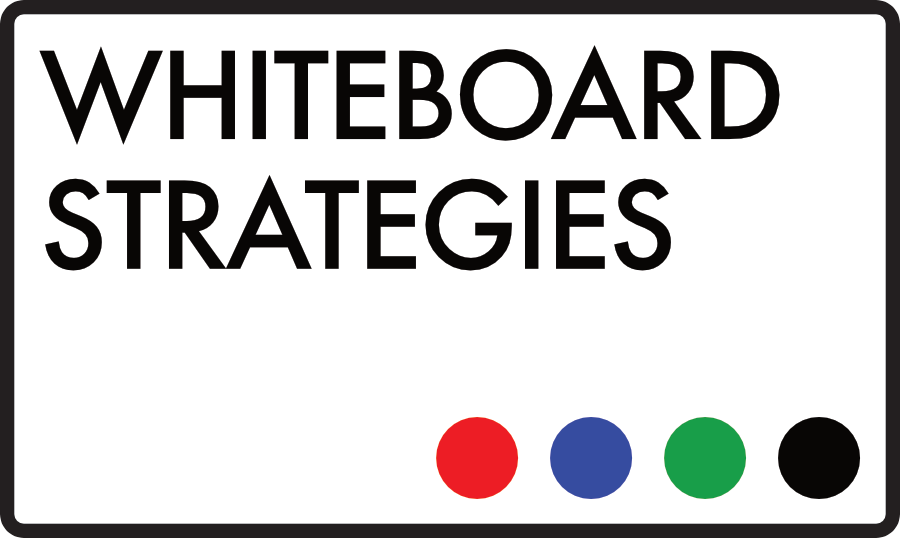I stumbled on a LinkedIn article this week that really got me thinking. See, at the very heart of Whiteboard Strategies is a desire to improve communication. We specialise in clearly, concisely and consistently articulating value, persuading decision makers, and creating the sort of transparent, open and focused conversations that lead to mutual trust and valuable, lasting relationships between organisations and their client base.
It’s a way of getting the decision your organisation needs using only one of the most simple—but most effective—pieces of persuasion technology on the planet. Visual comms tap into some of our most fundamental impulses and instincts, delivering messaging in a way that aids understanding and encourages information retention. A whiteboard strategy leverages the physiology of the brain and the psychology of decision making to create a compelling presentation for sales, marketing, product development and more.
Sales people have long been taught to sell the value of their product, service or idea, and to encourage emotional responses in decision makers, because emotional buyers make positive buying decisions. If people hate their ‘as is’ environment, or love your proposed ‘could be’ enough, they’ll be encouraged to buy your product. If people have a genuine need and you can articulate your solution well enough, they’ll buy your product.
But what if the physiology of the brain, the psychology of the decision, the emotional response of the individual and all the expert visuals in the world didn’t factor in a decision? What if you took the human out of the decision altogether?
That’s the question that I took away from an article on LinkedIn about Watson, the super computer developed by IBM. Since it won Jeopardy in 2011, its massive potential has been making waves across a number of industries. Watson is a new breed—the dawn of cognitive computing. This is a computer that learns, makes decisions based on existing information and past experiences, and alters its behaviours based on social interactions. It’s a computer that doesn’t need coded instructions on performing a given task. It’s an amazing thing.
Thanks to the unprecedented amount of data available, Watson can come to complex decisions (or a range of complex possible solutions) in seconds. Used in the medical sector, Watson can give a range of suggested treatments for a patient displaying a set of symptoms by referring back to past experiences or cases much as a human doctor would. That range of treatments could be based on millions of past cases in which those symptoms were shown, what treatments were successful and so on. Similarly in legal cases, Watson can mine databases collating millions of legal cases, finding precedent, counter-precedent and extenuations in the blink of an eye.
But here’s the really interesting thing to consider: it does all of this completely based on data. No gut feeling, no personal experience or prejudices, no emotional buy in. The data is the decision.
On the one hand this is an incredible accomplishment. We know one in five medical cases are misdiagnosed, or only receive a partial diagnosis—Watson could change that. We know juries are vulnerable to emotional manipulation by lawyers and defendants. Watson could change that. We know that human error has caused massive problems across the financial industries in the last decade. We know that people make bad decisions. Watson is already working across 26 vital industries and helping mankind make giant leaps forward by the day.
But I can’t help but feel like decision making is a fundamentally human quality. Something in me says that data can’t completely replace instinct and experience, and that metrics can’t stand in for honest, open, human connection. Data is hugely important for risk analysis, ROI measurement and more, but the data itself can’t be the decision… We are reactive, responsive, emotional creatures; data and cognitive computing can support those qualities in us, but they can’t replace them… there has to be more to it than that.
Doesn’t there? Maybe I’m wrong… but it would certainly have enormous repercussions for sales as an industry if the future held more buying decisions driven purely by data… right? Let me know what you think in the comments below or on Twitter or LinkedIn now.

Recent Comments